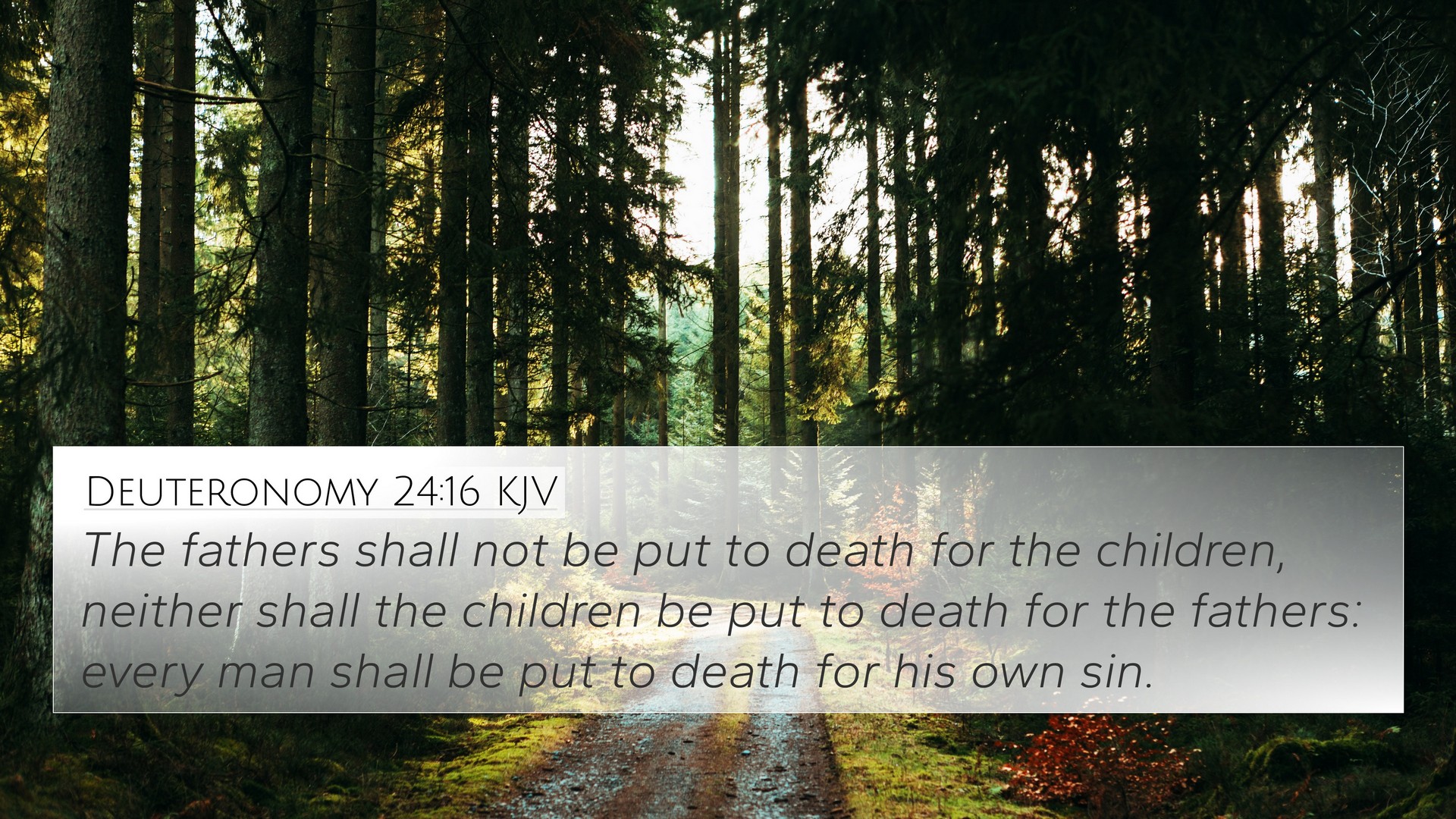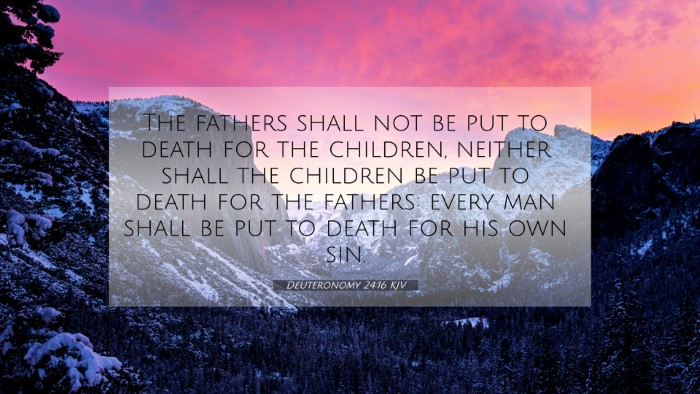Understanding Deuteronomy 24:16
Verse Reference: Deuteronomy 24:16 - "Fathers shall not be put to death for their children, neither shall children be put to death for their fathers: every man shall be put to death for his own sin."
Summary and Meaning
The verse from Deuteronomy 24:16 emphasizes the principle of individual responsibility and justice. In the context of Ancient Israel, it delineates a clear boundary about culpability, ensuring that no one is punished for the sins of another. This principle serves to prioritize moral integrity, showcasing God's desire for justice to be administered fairly and equitably.
Insights from Public Domain Commentaries
This verse has been analyzed by notable biblical scholars, including Matthew Henry, Albert Barnes, and Adam Clarke. Their interpretations provide a deeper understanding of its implications in biblical theology and moral philosophy.
-
Matthew Henry: Henry accentuates the fairness inherent in divine justice, asserting that God holds each individual accountable for their own actions. He suggests that this verse serves as a safeguarding principle against collective punishment, which can lead to injustice.
-
Albert Barnes: Barnes interprets this verse as a declaration of personal accountability, emphasizing that God's law calls for each person to answer for their own transgressions. He connects this with the overarching theme of justice prevalent throughout Scripture.
-
Adam Clarke: Clarke provides a historical context, noting that the Israelites were familiar with the practices of surrounding nations that often punished entire families or clans for the sins of an individual. This verse thus reflects God’s distinct law aimed at protecting the innocent and ensuring justice.
Cross-References and Thematic Connections
This command regarding personal responsibility finds similar themes throughout both the Old and New Testaments. Below are several significant cross-references that highlight these themes:
- Ezekiel 18:20: "The soul that sins, it shall die. The son shall not bear the iniquity of the father, neither shall the father bear the iniquity of the son..."
- Galatians 6:5: "For each will have to bear his own load."
- Romans 14:12: "So then each of us will give an account of himself to God."
- 2 Corinthians 5:10: "For we must all appear before the judgment seat of Christ, so that each one may receive what is due for what he has done in the body, whether good or evil."
- Matthew 12:36: "I tell you, on the day of judgment people will give account for every careless word they speak."
- Proverbs 11:21: "Be assured, an evil person will not go unpunished, but the offspring of the righteous will be delivered."
- Job 14:4: "Who can bring a clean thing out of an unclean? There is not one."
Theological Implications
Deuteronomy 24:16 illustrates profound theological implications regarding human nature and societal governance under divine authority. It challenges patterns of thought that endorse guilt by association, directing attention instead to personal sin and accountability.
Applications in Contemporary Context
This teaching calls for a reflection on justice in modern society. Individual responsibility is vital in all arenas—personal, legal, and community-related. Believers are encouraged to cultivate an environment that mirrors the biblical standards of justice and accountability.
Conclusion
In summary, Deuteronomy 24:16 stands as a testament to the justice of God. It prioritizes individual responsibility in moral and ethical conduct, a theme that resonates throughout the scriptures. As we explore various Bible verse cross-references and their connections, we see the importance of understanding God's expectations for personal accountability. This verse not only informs us of God’s laws but also invites us into a deeper relationship with the principles of justice and righteousness.






